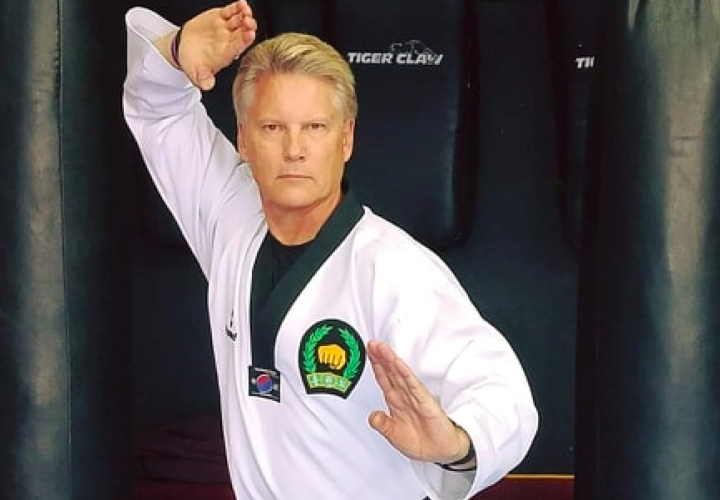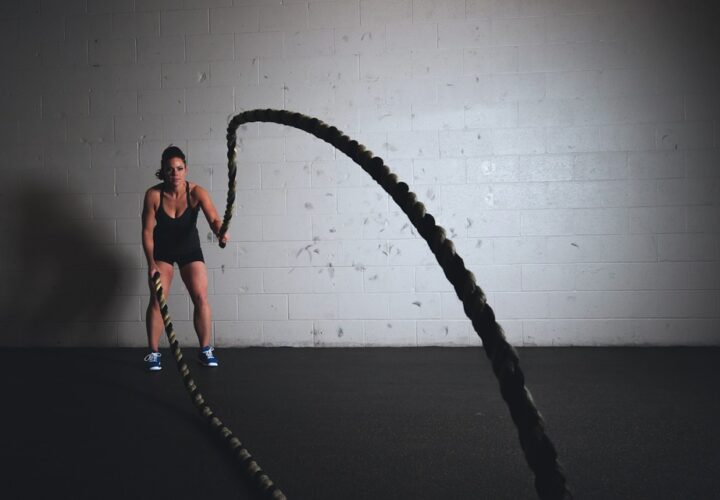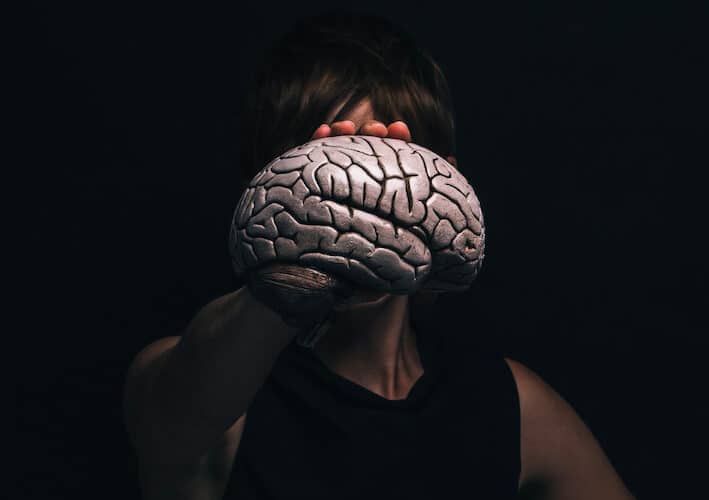When 51-year-old Steven Barbieri started experiencing memory problems, he never expected to receive a dementia diagnosis—particularly not one tied to his lifelong history of practicing martial arts.
Chronic traumatic encephalopathy, or CTE, is a form of dementia caused by repeated traumatic brain injuries — it’s commonly associated with contact sports, and it can only be officially diagnosed in a post-mortem autopsy. But doctors have grown very familiar with its signs. When 51-year-old Steven Barbieri started experiencing memory problems, he never expected to receive a dementia diagnosis — particularly not one tied to his lifelong history of practicing martial arts. Being Patient had the opportunity to talk with Barbieri about his involvement with martial arts, his history of head injuries and probable CTE diagnosis, and the lifestyle changes he has made following his diagnosis.
Practicing Martial Arts and Receiving Head Injuries
Being Patient: When did you start to practice Taekwondo?
Steven Barbieri: I started back in high school. I used to be picked on by some of the guys—I had an easier time talking to girls—so I figured I need to learn how to protect myself a bit better, so I started practicing Taekwondo at the age of 16. I’ve been doing it for 43 plus years, and for a lot of people it’s hard to make a living doing martial arts so I was a banker at Wells Fargo Bank. That was my career for 32 years, but martial arts was always a part of my life and even more so now that I’ve retired from the bank.
Being Patient: When you were practicing Taekwondo, did you take a lot of hits to the head?
Steven Barbieri: I trained back in the mid-70s when there wasn’t headgear, there weren’t hand chops or things like that, those were just coming out. When we used to train, you had a mouthpiece and a cup, that was how we trained at our school.
Taekwondo is a Korean style with a lot of kicking, and it was almost like an insult to kick below the waist, so you’d aim for the legs, but our style was a lot of kicks to the body and you wanted to aim a kick to the head because that was a better opportunity, a better shot. So, even in classes training regularly, and I was there five days a week, if you’re sparring you’re going to get kicked in the head, and like I said there were no pads on your feet at that time, and you had no head gear.
If you go to tournaments now, they have the mouth-guards, they have the headgear, the pads on the feet, the pads on the hands. It’s much more organized and safer for the kids, and they don’t really encourage the hard, fast kicks to the head anymore.

Being Patient: Do you remember getting concussions a lot? Was there concussion protocol back then?
Steven Barbieri: No, that’s kind of like a new word. You know, you hear “concussion protocol,” but that wasn’t even around I think three or four or five years ago, let alone 30 something years ago when I was starting to train at that higher level of competition.
You’d get kicked in the head and they would do what they did with football players, you know a little bit of smelling salts, wake you up, ask if you were okay, and of course you would say yes and get back in there. Or if you got kicked at the school, they’d give you smelling salts, set you to the side, and then ask you to rotate back in so that you wouldn’t be afraid to get back in there.
There were several times in tournaments that I got hit in the head, I hit my head on a diving board in a high school accident, and I was in a car accident where I hit my head. So, there’s been a lot of times in my life where I’ve had concussions or head injuries, but like I said, doing martial arts back in the days when they didn’t have concussion protocols or safety gear, I suffered probably a lot of minor concussions as well as full-blown concussions.
Recognizing Cognitive Issues and the CTE Diagnosis
Being Patient: When did you notice that something wasn’t quite right?
Steven Barbieri: Well, that’s the thing, as a person with the disease, you’re not going to notice it. That’s why for a person living alone it’s hard to get a diagnosis, because you won’t notice those changes in yourself. The way that it was happening with my wife and myself, my wife and I started arguing about things and it really seemed to revolve around her telling me to do something, and me not doing it.
Now, that sounds like a normal husband, but that wasn’t the case. Like one day she told me to pick up the girls from school, and I was leaving town for Fresno. I thought I told her that, and she said I told her that I would pick up the girls. All of a sudden she gets a call at work saying the girls haven’t been picked up, she calls me and I say, “well, I’m in Fresno.” She says, “Well, you didn’t tell me that,” and I said, “Yes, I did.” I said she didn’t tell me to pick up the girls, and we got into a big argument.
Finally, she said she was going to have my hearing checked. And that’s basically where my diagnosis started. It started with a hearing test, I did fine, but then during the conversation they had to repeat instructions, so they started doing some minor cognitive testing.
Being Patient: When did you realize it was a problem with your memory?
Steven Barbieri: Right when they first did the tests. There’s the old thing about remembering five words, then they distract you and come back five minutes later, and I could never remember all five. One test led to another test led to another test, and the same thing with my diagnosis.
My initial diagnosis was pseudodementia, but as time went along and testing went along, it went from pseudodementia to mild cognitive impairment. They did other tests, including a PET scan, and with the PET scan they could find the damage to both sides of my temporal lobe. So of course, they thought it was frontotemporal dementia.
Well, the problem was that nobody sat down to have a life conversation with me. They saw me coming in with a suit and tie and knew I was a banker, so they assumed I was just a banker, not knowing about all these other things in my life like doing martial arts for 40 years. So, somebody finally sat own and had a life conversation for 45 minutes with me and went “Oh my goodness. You’re a classic CTE.” Now, they say that there’s no way to properly diagnose somebody with CTE, the only other way is to do an autopsy and I’m not ready for that test yet. So, I’m clinically aligned with CTE.
Lifestyle Changes and Life Outlook
Being Patient: How has your lifestyle changed following your diagnosis?
Steven Barbieri: I try and tell people all the time, once you get a diagnosis it’s not a death sentence. For me it was an awakening. A lot of people hit pause on their life, but I always tell people I didn’t hit pause; I hit fast forward. I made a lot of changes. The biggest thing I started doing was going to the gym on a regular basis and lifting that heavy weight, getting that cardio in.
On Fridays I go out and see a lot of martial arts friends, we actually have a club, so I make sure to get out and get that social engagement. My wife made sure that my eating improved. That’s why when I meet other people who have dementia, I’m asking them a lot of questions because a lot of people I find out have dementia, they haven’t made any lifestyle changes.
I ask what they’ve been doing since they got the diagnosis, and they look at me like, well what do you mean? And I go, well do you go to the gym, do you take any supplements, are you doing this, and they’re like, no, I just sleep a lot. When you get that diagnosis, you’ve got to do that lifestyle change. I don’t go to the gym for two hours a day, Monday through Thursday because I love it, I do it because that’s part of my protocol, my process.
Being Patient: One of the things you told us earlier is that you still practice martial arts, even though martial arts are potentially a factor behind why you have dementia. What role does it play in your life today?
Steven Barbieri: Well, it was really because of the contact. You can practice and train in martial arts without that contact, you have punching bags and forms. I still train and stretch and work out, and I actually have several friends who have martial arts studios that I go over to as a guest instructor and teach at different things, and I’ll work with students on their kicking techniques, but I don’t physically kick someone in the head and I don’t get kicked. I don’t do the sparring part of it anymore.
I’ve actually also gotten into boxing now, and I do a lot of mittwork where my coach calls out different combinations, and as soon as I get good at the combinations he’ll change it on me, or he’ll tease me by putting up one hand and calling out two, so he’s working my body as well as my mind. My wife says, I can do all of that I want, just no contact. So, you can still train in martial arts without the contact, and that’s what I do.
Being Patient: In the years since your diagnosis, has the lifestyle change helped?
Steven Barbieri: To be honest with you, I’m pretty happy where I’m at after eight years. When you do a lot of reading about dementia, typically they say that life existence is eight years to twenty years, but most people don’t get that early diagnosis. That early diagnosis is so important, so I’m very lucking to have gotten that early diagnosis, but in the eight years that I’ve had the disease, I consider myself still highly functionable.
I don’t drive at night because I’m just not as confident. I have word-finding problems sometimes. My smell and my taste don’t work very well anymore. So, over the years there’ve been a lot of changes, but I’ve been very fortunate to have my wife with me, and we’ve created a lot of processes to help me. I’m very blessed.




